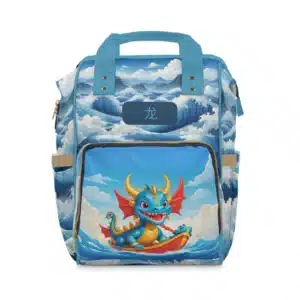Did you know that the coloring book market is projected to reach over $5 billion by 2027? This growth highlights the diverse interests of consumers, making it essential for creators to identify the top niches that resonate with audiences. From mindfulness themes to captivating fantasy illustrations, there’s a wealth of opportunities waiting for you. What niches should you focus on to tap into this lucrative market? Let’s explore the possibilities.
Key Takeaways
- Mindfulness and relaxation coloring books promote stress relief and mental well-being through detailed illustrations and mindfulness techniques.
- Nature and wildlife themes raise awareness about conservation while engaging users with vibrant animal and ecosystem designs.
- Fantasy and mythical creature coloring books encourage imaginative exploration with whimsical themes and enchanting landscapes.
- Inspirational quotes and affirmations focus on self-reflection and positivity, enhancing the coloring experience with motivational phrases.
- Seasonal and holiday-themed coloring books celebrate various times of the year, offering vibrant designs for different occasions and festivities.
Mindfulness and Relaxation Coloring Books
When you immerse yourself in mindfulness and relaxation coloring books, you not only unleash your creativity but also cultivate a sense of calm.
These books serve as a practical tool for implementing mindfulness techniques, allowing you to focus your thoughts and be present in the moment. As you color intricate patterns and designs, you engage in relaxation exercises that help reduce stress and anxiety.
Each stroke of your colored pencil invites a deeper connection to your inner self, fostering tranquility. Whether you’re a beginner or an experienced artist, these coloring books provide an accessible way to practice mindfulness.
Nature and Wildlife Themes
When you think about nature and wildlife themes, popular animal illustrations and intricate botanical patterns come to mind.
These elements not only captivate your audience but also offer a chance for creativity and relaxation.
Popular Animal Illustrations
Animal illustrations inspired by nature and wildlife are captivating, drawing in both young and adult artists alike. They not only provide a creative outlet but also raise awareness about wildlife conservation and endangered species.
Here are some popular themes to consider for your coloring books:
- Big Cats – From majestic lions to elusive leopards, these powerful animals evoke awe.
- Marine Life – Colorful fish, graceful dolphins, and majestic whales highlight ocean ecosystems.
- Birds of Prey – Eagles and hawks showcase the beauty of aerial hunters and their habitats.
- Endangered Species – Illustrating these animals fosters awareness and support for conservation efforts.
Botanical Patterns and Designs
While nature inspires countless artistic endeavors, botanical patterns and designs stand out as a vibrant niche for coloring book creators. These intricate leaf designs not only captivate artists but also offer a calming experience for users. By incorporating various botanical color palettes, you can attract a diverse audience seeking relaxation through creativity.
Here’s a quick overview of popular botanical themes:
| Botanical Theme | Popular Elements |
|---|---|
| Tropical Leaves | Monstera, Palms |
| Wildflowers | Daisies, Poppies |
| Succulents | Aloe, Echeveria |
| Herbs | Basil, Rosemary |
| Trees | Oak, Birch |
As you explore this niche, remember to blend detail and simplicity to create a unique coloring experience.
Fantasy and Mythical Creatures
Exploring the enchanting realm of fantasy and mythical creatures opens up a world of creativity for coloring book creators.
There’s a vast scope to capture imaginations with intriguing themes. Consider these ideas to inspire your designs:
- Dragon designs: Create fierce and friendly dragons with intricate scales and whimsical expressions.
- Mythical landscapes: Illustrate enchanting forests, mystical mountains, and magical waterfalls that transport users to another world.
- Legendary beings: Feature unicorns, mermaids, and griffins, allowing colorists to personalize their depictions.
- Fairy tales: Dive into classic stories, giving users the chance to color their favorite scenes and characters.
Inspirational Quotes and Affirmations
Creating a coloring book centered around inspirational quotes and affirmations can transform a simple activity into a powerful tool for self-reflection and motivation. By incorporating motivational phrases, you encourage users to embrace positivity and resilience while they color.
Each page can feature a unique quote, paired with designs that complement the theme, making it visually appealing and uplifting. As users engage in this creative process, they naturally incorporate self-care practices into their routine.
Coloring becomes a mindful activity, allowing them to pause, reflect, and internalize the affirmations. This niche not only fosters creativity but also nurtures mental well-being. Position your coloring book as a source of inspiration, helping individuals cultivate a mindset of gratitude and self-love.
Whimsical and Playful Illustrations for Kids
Colorful, whimsical illustrations can spark a child’s imagination and make coloring an exciting adventure.
When creating coloring books for kids, consider incorporating these elements:
- Whimsical Characters: Think fairies, talking animals, and silly monsters that bring joy and laughter.
- Playful Scenes: Design settings like magical forests, underwater worlds, or enchanted castles that invite exploration.
- Interactive Elements: Include prompts for kids to add their own characters or scenes, fostering creativity.
- Diverse Themes: Explore themes like friendship, fantasy, or seasonal fun to keep kids engaged.
Cultural and Historical Art Styles
Exploring cultural and historical art styles can add rich layers to your coloring book creations.
You can incorporate traditional patterns and motifs, spotlight iconic historical figures, and explore cultural symbolism that resonates with diverse audiences.
Traditional Patterns and Motifs
While traditional patterns and motifs draw inspiration from rich cultural and historical contexts, they also provide a unique canvas for creativity in coloring books. By incorporating these designs, you can engage users in a meaningful artistic experience.
Here are some key elements to consider:
- Geometric Designs: Perfect for creating intricate layouts that challenge colorists while highlighting symmetry.
- Ethnic Motifs: Infuse cultural significance, allowing users to connect with diverse traditions.
- Floral Patterns: Bring nature to life, offering vibrant coloring opportunities.
- Textile Inspirations: Mimic fabric prints, adding texture and depth to each page.
Iconic Historical Figures
When you incorporate iconic historical figures into your coloring book, you not only create an engaging experience but also offer users a glimpse into the past. Featuring famous figures can serve as educational content, helping users learn about their contributions while enjoying a creative outlet. Consider including a variety of styles and formats for each figure to keep the content dynamic.
| Famous Figure | Artistic Style | Historical Context |
|---|---|---|
| Leonardo da Vinci | Renaissance Art | Innovations in art |
| Harriet Tubman | American Realism | Civil rights movement |
| Cleopatra | Ancient Egyptian Art | Egyptian history |
| Albert Einstein | Abstract Art | Scientific advancements |
Cultural Symbolism Exploration
Delving into cultural symbolism through various art styles not only enriches your coloring book but also invites users to connect with diverse traditions and histories.
By exploring cultural identity, you can create a meaningful experience. Here are some key elements to consider:
- Motifs: Integrate patterns and symbols that represent different cultures, like mandalas or tribal designs.
- Color Palettes: Use traditional colors that hold significance in various cultures, enhancing the symbolic representation.
- Historical Context: Provide brief descriptions of the cultural backgrounds behind the art styles you feature.
- Interactive Elements: Encourage users to reflect on their own cultural identities as they color, fostering a personal connection.
Incorporating these aspects makes your coloring book not just fun, but also educational and enriching.
Adult Coloring Books With Complex Patterns
If you’re looking to unwind and express your creativity, adult coloring books featuring complex patterns might be just what you need.
These books often showcase intricate designs that challenge your artistic skills while providing a therapeutic escape. Delving into these patterns allows you to explore color theory, mixing hues and shades to bring each page to life.
You’ll find everything from mandalas to abstract art, encouraging mindfulness and focus as you color. By engaging with these detailed illustrations, you can enhance your fine motor skills and develop a deeper appreciation for art.
Seasonal and Holiday-Themed Coloring Books
As the seasons change, so do the themes of coloring books, offering you a delightful way to celebrate each time of year.
Seasonal celebrations and holiday traditions come alive through vibrant illustrations, making every page a canvas for creativity. Here are some popular themes to consider:
- Winter Wonderland – Embrace the beauty of snowflakes and festive decorations.
- Spring Blossoms – Capture the essence of renewal with flowers and Easter motifs.
- Summer Fun – Dive into beach scenes, barbecues, and outdoor adventures.
- Autumn Harvest – Celebrate fall with pumpkins, leaves, and cozy vibes.
Creating seasonal and holiday-themed coloring books allows you to connect with your audience while tapping into their joyful experiences.
Coloring Books Featuring Popular Characters and Franchises
Coloring books featuring popular characters and franchises tap into the nostalgia and excitement fans feel for their favorite shows, movies, and games. By creating these books, you can attract a dedicated audience eager to engage with beloved characters.
Think about including character mashups and franchise crossovers, which can create unique and thrilling coloring experiences. Imagine blending characters from different universes, allowing fans to see their favorites interact in imaginative ways.
This not only enhances creativity but also expands your potential market, as you’ll appeal to multiple fandoms at once. By tapping into this niche, you can harness the emotional connection fans have with these characters, driving both interest and sales for your coloring books.
Frequently Asked Questions
How Do I Market My Coloring Book Effectively?
To market your coloring book effectively, leverage social media platforms to engage your target audience. Create eye-catching posts, host giveaways, and share user-generated content. Consistency and interaction will build a loyal following and boost sales.
What Materials Are Best for Coloring Book Pages?
When it comes to coloring book pages, you can’t judge a book by its cover. Opt for thick paper types to prevent bleed-through and ensure high ink quality for vibrant colors that pop on the page.
Are There Copyright Issues With Using Popular Characters?
Yes, there are copyright issues with using popular characters. You could face copyright infringement without proper character licensing. Always seek permission or create original designs to avoid legal troubles and ensure your work remains unique.
How Do I Price My Coloring Book Competitively?
To price your coloring book competitively, analyze your competitors’ pricing strategies and conduct thorough market research. Consider production costs, target audience, and perceived value to determine a price that attracts buyers while ensuring profitability.
What Printing Options Should I Consider for My Coloring Book?
Consider digital printing for smaller runs and quick turnaround, while offset printing suits larger quantities, offering lower per-unit costs. Evaluate your budget and production timeline to choose the best option for your coloring book project.
Conclusion
In exploring these top niches in coloring books, it’s clear that they offer more than just a creative outlet; they provide pathways to mindfulness, connection with nature, and personal growth. Whether you’re drawn to intricate patterns or whimsical characters, each category serves a purpose—helping you unwind, reflect, or simply enjoy the moment. By tapping into these themes, you can create not just coloring books, but experiences that resonate deeply with your audience, fostering joy and inspiration in their lives.




